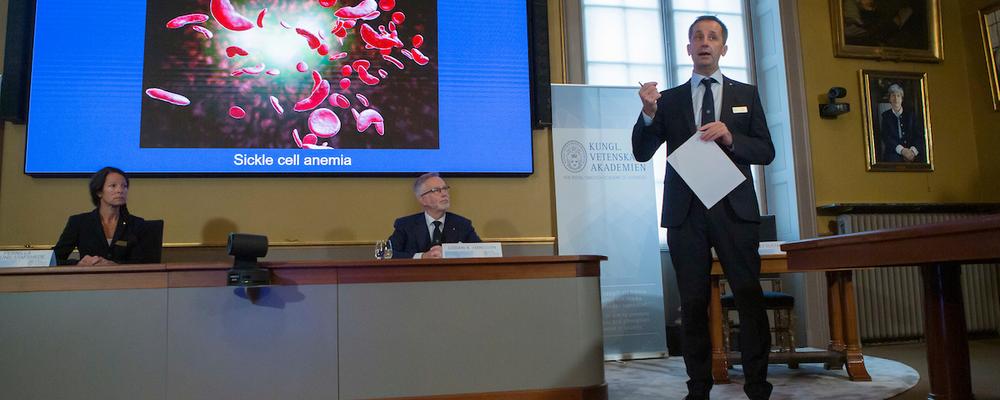“They are often quite strong-willed people, with strong confidence in themselves. They often have a somewhat unusual background, such as the Chemistry Laureate Jacques Dubochet, who according to his own statement was the first official dyslexic in the Swiss canton of Vaud or the Medicine Laureate Mario Capecchi, who was a 5-year-old street child in Italy during World War II,” says Claes Gustafsson.
For those who are interested in research, the coming week will be a delight. On Monday, October 4, the Nobel Prize in Physiology or medicine will be announced and the next two days it will be revealed who will receive the Chemistry and Physics Prize. On Thursday, it is time for the Nobel Prize in Literature and the day after the Nobel Peace Prize. It all ends on Monday 11 October when we will find out who will be awarded the Economy Prize.
Works hard and knows a lot
As a member of the Nobel Committee for Chemistry, Claes Gustafsson has been involved in nominating many Nobel Laureates. He finds it difficult to point to an individual trait in those who have received the award, but notes that most Laureates work very hard and are very knowledgeable in their respective subjects.
“When 96-year-old Arthur Ashkin received the Nobel Prize in Physics, he did not want to be interviewed. He was busy writing a scientific paper and was anxious that interviews would take too much time.”
And maybe he was on to something. Being named a Nobel Laureate is a groundbreaking event. The attention surrounding the prize is enormous and even if the positive of course weighs up, the scientific work can sometimes suffer.
“The negative is mostly about becoming a public figure overnight and being bombarded with different types of invitations. It takes a lot of time to handle and disturbs their peace of mind. But it is of course enjoyable to get appreciation for what you have achieved and that colleagues see your work as important. Many Laureates are deeply moved when they receive the message.”
The B correspondence
Over the years, many have had strong opinions about who should be awarded a Nobel Prize, not only researchers but also among the public. Johan Kärnfelt, Associate Professor of History of Ideas and Science, has written about the so-called B-correspondence that has been received by the Royal Swedish Academy of Sciences, which appoints the Chemistry, Physics and Economics Laureates.
“These are letters from people outside universities and academies who with very different backgrounds want to make their voices heard. As they do not have a formal role concerning nominations and the like, the letters are put aside and not normally answered.”
Until e-mails took over, there were hundreds of letters a year. Over the years, much of this has been thinned out, but the archive contains an unbroken suite of B-correspondence dating back to the early 20th century.
“The letters usually concern scientific things. Sometimes the letter writers attach home-made theories that they want examined or that they even think are worthy of the Nobel Prize. They claim to have invented an eternity machine, solved the mystery of cancer or once again proved that Einstein is wrong.”
Key areas vary over time
It remains to be seen who and which research areas will be awarded a Nobel Prize this year. Areas that are seen as key or not vary over time, according to Claes Gustafsson, a member of the Nobel Committee on Chemistry.
“Sometimes you do not understand until after a while the significance of a discovery. Two years ago, for example, we rewarded the chemistry behind lithium batteries. When the discoveries were originally made, no one could have foreseen the enormous significance of this type of battery in developing wireless electronics and enabling a fossil-free world.”
BY: THOMAS MELIN
